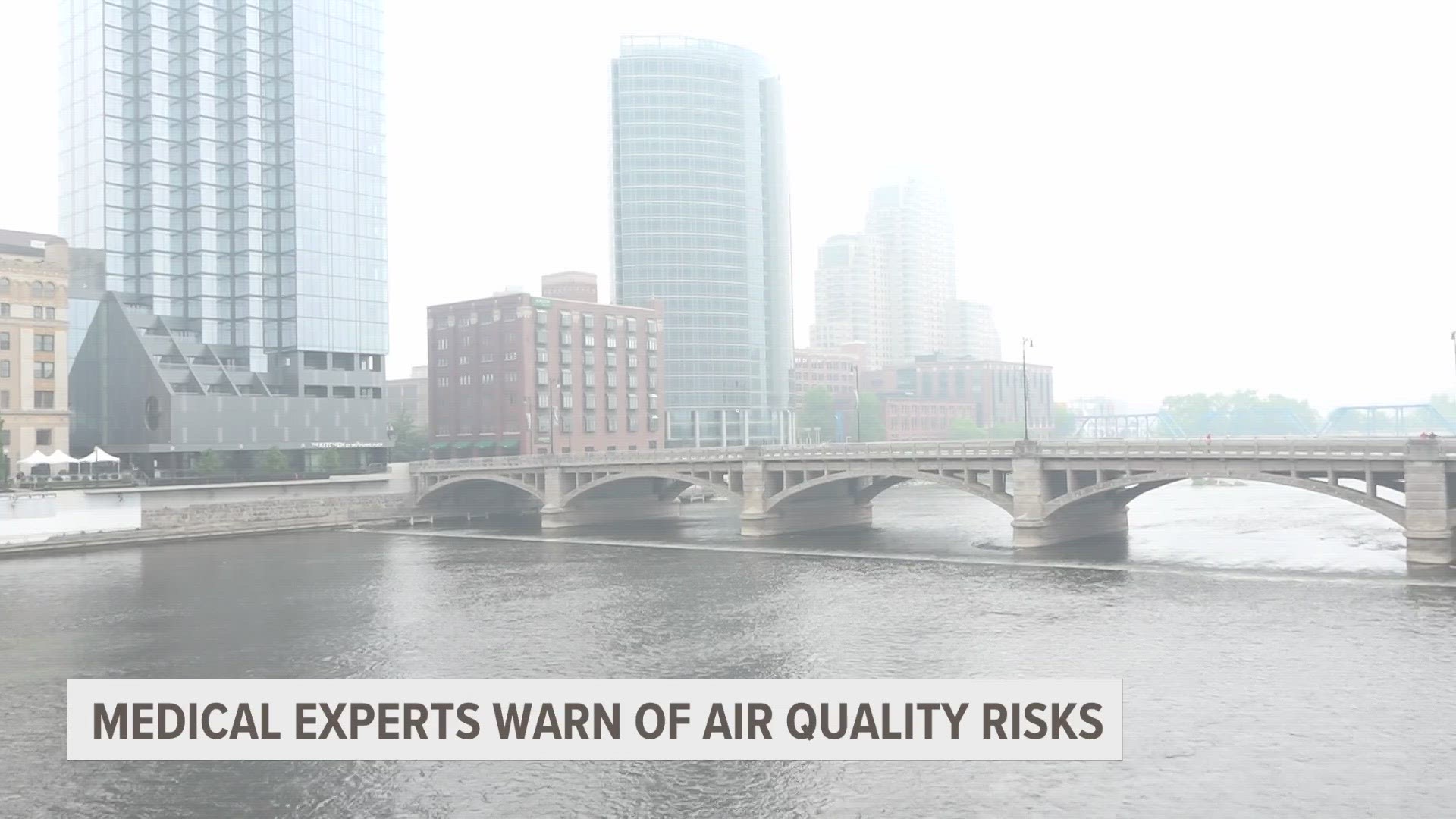GRAND RAPIDS, Mich. — West Michigan has been experiencing some of the worst air quality in the nation due to smoke from the Canadian wildfires.
The air quality index measures air quality on a scale from zero to 500, with the larger numbers being worse air quality.
West Michigan has been experiencing air quality in the 200 to 300 range, which is considered hazardous to everyone, not just those with underlying heart and lung conditions.
Michigan’s Chief Medical Executive Dr. Natasha Bagdasarian explained what medical experts are most concerned about regarding the air quality.
“We're concerned about very small particles that can actually reach those smallest areas of your lungs. And these are called PM 2.5 particle. Now, what we know about these particles is that they can impact even healthy lungs, but certain individuals are at higher risk. And we're really talking about folks here who have underlying heart disease underlying lung disease, and those at the extremes of age. So, people who are very young folks who are elderly, and also individuals who are pregnant.”
Air quality in the 200 to 300 range is unhealthy for everyone, and Dr. Bagdasarian urges everyone to limit their time outside, to take certain measures to protect their lungs if they need to be outside for extended periods of time, such as wearing N95, KN95, or KF94 masks.
“Now, there are some other strategies that you could use indoors, for example, you could think about using an air purifier, making sure that your windows, of course, are closed tightly. And again, avoiding strenuous activities. And the other thing that I do want to point out is that if you are having respiratory problems, if you were struggling to breathe, you should seek medical attention right away.”
Dr. Ronald Grifka, Chief Medical Officer at UofM Health-West, comments on the other symptoms anyone could experience due to prolonged exposure to the smoke in the air.
“Obviously, trouble breathing, but we can have watery, burning eyes, dizziness, headache, nausea, stuffy nose and itchy throat are all symptoms also of the particulate matter getting an upper airway causing symptoms.”
He encourages people to stay inside with AC and air purifiers if applicable, but also stresses that those with window AC units close their fresh air vent. Both doctors also encourage people to hold off on activities that can increase the particles in the air they are breathing, such as vacuuming, burning wood, lighting candles or smoking.
Updates on air quality and the air quality index map can be found here.
►Make it easy to keep up to date with more stories like this. Download the 13 ON YOUR SIDE app now.
Have a news tip? Email news@13onyourside.com, visit our Facebook page or Twitter. Subscribe to our YouTube channel.

